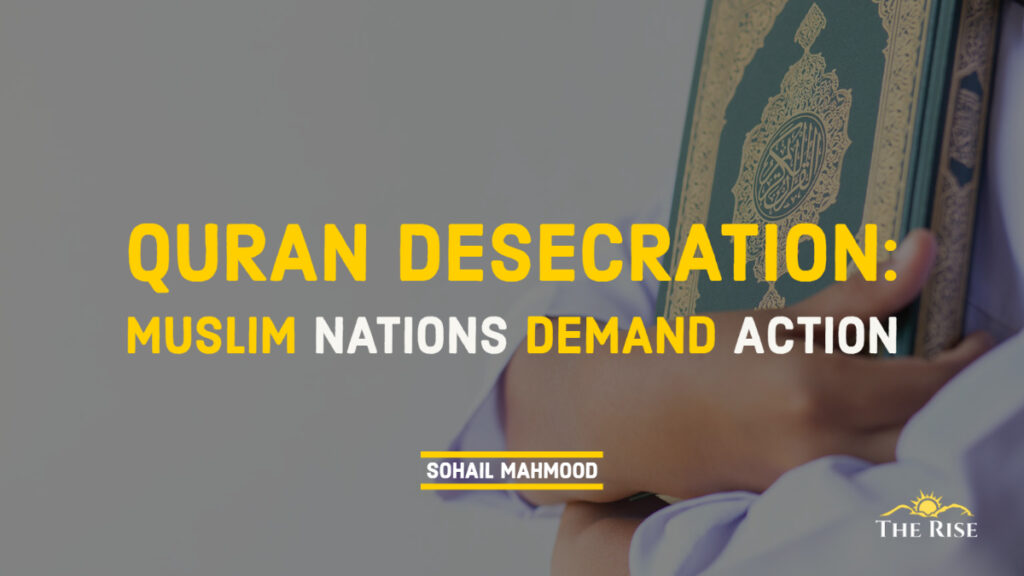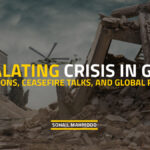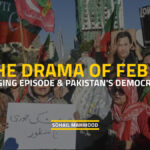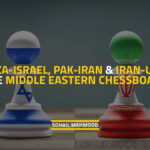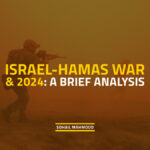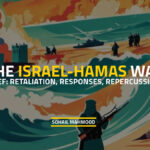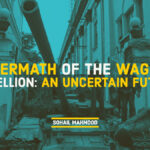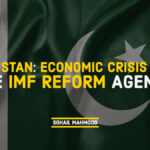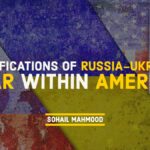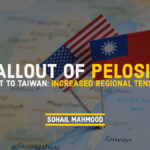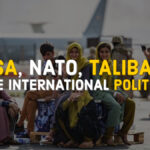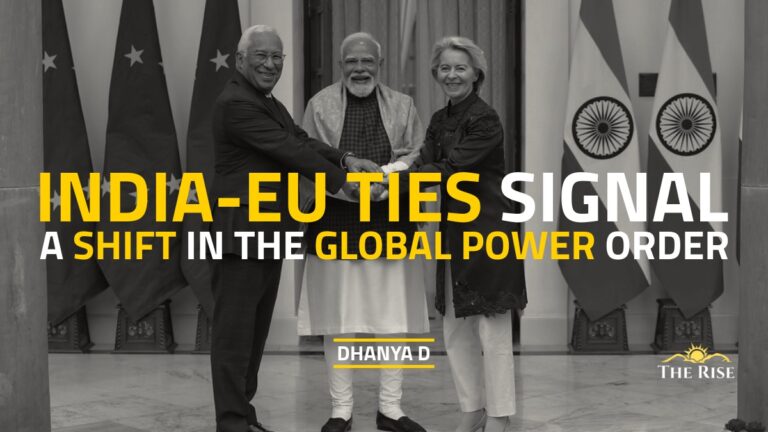The recent Quran desecration in Sweden and Denmark sparked protests in many places of the Muslim world, especially in Pakistan, Iran, Iraq, Ghana, and Lebanon. In this regard, an emergency meeting of the OIC was held in which it was called for collective measures against Quran desecrations. Further, Pakistan and Turkey are cooperating to evolve a joint strategy to prevent such actions in the future.
Earlier, the tension between Muslim countries and the two Scandinavian nations intensified in June 2023 after a 37-year-old Christian Iraqi refugee in Sweden, Salwan Momika, burned pages of the Quran on the Islamic holiday Eid al-Adha.
July 20, 2023’s anti-Islam demonstration in Sweden’s capital, Stockholm, prompted Middle Eastern states, Saudi Arabia and Iran, the region’s leading Sunni and Shia powers, to summon Swedish diplomats in protest.
Iranian Supreme Leader Ali Khamenei on July 22, 2023, urged Sweden to hand over culprits to Islamic nations’ judiciaries. “The Swedish government should know that by supporting the criminal who burnt the Holy Quran it has gone into battle array for war on the Muslim world,” he said on Twitter.
On July 22, 2023, several thousand Iraqis demonstrated in Baghdad over the protests in the Sedan and Denmark.
On July 23, 2023, the Organization of Islamic Cooperation (OIC), a coalition of 57 Muslim countries, suspended the status of Sweden’s special envoy over the string of Quran burnings, saying the decision was due to the “Swedish authorities granting licenses which enabled the repeated abuse of the sanctity of the Holy Quran and Islamic symbols”.
On July 24, 2023, two protesters set fire to a copy of Islam’s holy book, the Quran, in front of the Iraqi embassy in Denmark’s capital, Copenhagen. The duo from the group called Danish Patriots stomped on the Quran and set it alight in a tin foil tray next to the Iraqi flag lying on the ground.
Also Read: Aftermath of the Wagner Rebellion: An Uncertain Future
Shortly after the incident, Iraq’s foreign ministry called on the authorities of countries in the European Union to “quickly reconsider so-called freedom of expression and the right to demonstrate”.
The far-right, ultra-nationalist Danish Patriots held a similar demonstration and live-streamed the events on Facebook. In this regard, Danish Foreign Minister Lars Lokke Rasmussen condemned it as an act of “stupidity” by a few individuals, telling national broadcaster DR: “It is a disgraceful act to insult the religion of others. This act of burning of Qurans and other religious symbols has no other purpose but to provoke and create division.” He noted, however, that burning religious books was not a crime in Denmark.
Earlier, the recent Quran desecration in Sweden and Denmark sparked protests in many places of the Muslim world, especially in Pakistan, Iran, Iraq, Ghana, and Lebanon. The one in Baghdad was violent. President Raeisi of Iran censored the granting of permission to desecrate the Quran. In Afghanistan, the Taliban suspended all the activities of Swedish organizations in the country in response to the events. In Pakistan, the national parliament and the provincial assemblies condemned the acts. The emergency meeting of the OIC was held earlier in which it called for collective measures against Quran desecrations. Pakistan and Turkey are now cooperating to evolve a joint strategy to prevent such actions in the future. Iran, Kuwait, Saudi Arabia, and others shall also cooperate in regard to this strategy. All these actions were expected.
For the first time, social media was mobilized by faithfully asking for a boycott of Swedish and Danish products. The issue is that of Islamic identity in the modern secular West. The issue is attracting right-wing political and Islamic political parties who wish to benefit from the opportunity to galvanize popular support for the cause. Such politics is expected as it helps to mobilize the constituencies for a noble cause: “protecting the sanctity of the Quran”.
Meanwhile, the question is why Sweden and Denmark allow Quran burning. Like many Western countries, it is not illegal to burn the Quran, or other holy books, in Sweden and Denmark. The two countries do not have any blasphemy laws on the text to stop it completely. In Sweden, the police itself did not allow this stunt of Quran burning because of its sensitivity. Still, then the lower court allowed it as it was expressly illegal or criminalized behavior. The Government of Denmark did condemn the act in clear categorical terms. Recall, that out of 198 countries in the world, only 79 have blasphemy laws criminalizing such desecration acts. In the US, under the freedom of speech protections given in the Constitution’s First Amendment, it is not illegal to burn copies of the Quran or other holy books. In 2011, the Florida pastor Terry Jones led a Quran-burning event that created a global uproar. Can Quran burning be considered hate speech? It depends upon the individual. Muslims all over the world are appalled by these acts, while most Westerners are not.
What is the solution? It is necessary that global Muslim organizations like the OIC collaborate with the local Muslim communities in Sweden and Denmark to agitate for the criminalization of the Quran desecration. This approach is the most sensible but difficult. The laws in Sweden and Denmark cannot be easily changed by tiny minorities. Therefore, bigger Muslim minorities in France, Germany, and the United Kingdom must initiate the protracted process of law amendments. It will not be easy at all but since it is a question of basic Muslim identity it can be expected.
Disclaimer: The views expressed in this article are of the author solely. TheRise.co.in neither endorses nor is responsible for them. Reproducing this content without permission is prohibited.
About the author
Sohail Mahmood is an independent global affairs analyst and the author of several books, monographs, and research articles on the Middle East and South Asian politics, governance, and development issues. He has taught for about 30 years in various universities of Pakistan and the US and has worked as a consultant for the World Bank, CIDA, SDC, IUCN, and UNDP. Sohail lives in Chapel Hill, North Carolina, United States.

